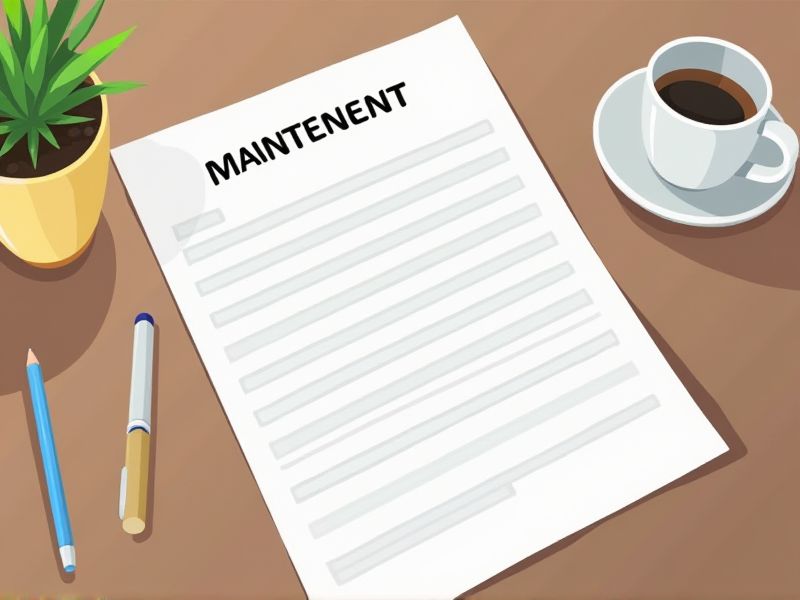
Maintenance and Reliability Professionals ensure equipment operates efficiently, minimizing downtime and maximizing production. When professionals obtain certain certifications, they validate their expertise in predictive maintenance, asset management, and reliability analysis. Without these certifications, organizations may suffer from increased costs and reduced equipment life. Consider these important certifications for advancing a career in Maintenance and Reliability.
Certified Maintenance and Reliability Professional (CMRP)
Obtaining the Certified Maintenance and Reliability Professional (CMRP) certification validates a professional's expertise in maintenance and reliability best practices, leading to improved operational efficiency. The certification helps individuals remain competitive in the job market by demonstrating a commitment to continuous learning and industry standards. Employers often see CMRP-certified professionals as valuable assets, as they bring structured approaches to problem-solving and asset management. The CMRP credential can result in cost savings for organizations through improved maintenance strategies and reduced downtime.
Certified Reliability Engineer (CRE)
A Certified Reliability Engineer (CRE) enhances the accuracy of reliability assessments by applying advanced statistical methods and engineering principles, which leads to more efficient maintenance planning. CREs systematically identify potential failure modes, allowing maintenance and reliability professionals to implement proactive strategies that prevent costly downtime. The expertise of a CRE in lifecycle planning translates into optimized asset utilization and life extension, reducing overall maintenance costs. With a CRE, organizations benefit from improved safety standards and compliance with industry regulations through systematic reliability analysis and risk management.
Six Sigma Green Belt Certification
Obtaining a Six Sigma Green Belt Certification enhances a maintenance and reliability professional's ability to identify inefficiencies and implement process improvements, leading to reduced operational costs. Green Belt Certification provides the skills necessary to analyze complex systems, which aids in predicting equipment failures and increasing asset uptime. Certified professionals gain a structured approach to problem-solving, resulting in fewer breakdowns and improved production quality. The systematic methodology supports data-driven decision-making that can significantly boost equipment reliability and longevity.
Lean Manufacturing Certification
Lean Manufacturing Certification equips maintenance and reliability professionals with tools to streamline operations, reducing waste and downtime. This training enhances problem-solving skills, fostering a proactive approach to equipment maintenance that improves overall efficiency. Certified professionals can better implement strategies that align with lean principles, optimizing resource use and cutting costs. Organizations benefit from these skills as they lead to fewer breakdowns and extended asset lifecycles, enhancing profitability.
ISO 55000 Asset Management Certification
ISO 55000 Asset Management Certification provides a structured framework that enhances asset management standards, leading to improved reliability and maintenance practices. This certification helps professionals manage assets effectively, reducing operational risks and maintenance costs. With a standardized approach, organizations can align their asset management strategies with global best practices, ensuring optimal performance. Familiarity with ISO 55000 principles also equips professionals with the skills to improve asset lifecycle management and foster sustainable asset operation.
Certified Asset Management Professional (CAMP)
Certified Asset Management Professional (CAMP) equips Maintenance and Reliability professionals with a structured approach to managing assets, leading to enhanced operational efficiency. By understanding asset lifecycle management, these professionals can reduce costs and improve equipment reliability. Training through CAMP provides the necessary skills to optimize resource use and prolong asset life. Furthermore, certification in CAMP aligns maintenance strategies with organizational goals, thereby increasing overall productivity.
Certified Facilities Manager (CFM)
A Certified Facilities Manager (CFM) provides comprehensive understanding of facility operations, which directly enhances maintenance strategies and asset reliability. With certification, managers gain insights into cost-effective practices, reducing downtime and optimizing equipment functionality. The CFM credential ensures adherence to industry standards, minimizing risks associated with inefficient maintenance practices. Certified managers contribute to strategic planning that aligns facility goals with resource management, thereby improving overall efficiency and reliability.
OSHA Occupational Safety Certification
OSHA Occupational Safety Certification is important for Maintenance and Reliability Professionals because it ensures adherence to safety standards, reducing workplace accidents. This qualification helps professionals identify potential hazards, leading to improved safety protocols. Certification also enhances their problem-solving skills related to equipment reliability and maintenance efficiency. Employers prefer certified professionals, as it conveys a commitment to maintaining a safe working environment.
Root Cause Analysis (RCA) Certification
Achieving Root Cause Analysis (RCA) certification equips maintenance and reliability professionals with systematic approaches to identify the underlying causes of equipment failures. This expertise enables the implementation of corrective actions that prevent recurrence, leading to a reduction in downtime and maintenance costs. Certified professionals tend to enhance operational efficiency, aligning with industry standards and best practices. RCA certification also offers a structured framework for continuous improvement, fostering a culture of accountability and proactive problem-solving within organizations.
Computerized Maintenance Management System (CMMS) Certification
A CMMS certification enhances the technical proficiency of maintenance and reliability professionals, ensuring they are equipped with the necessary skills to effectively manage maintenance tasks. The certification validates their ability to optimize asset management, leading to minimized downtime and improved operational efficiency. Professionals with CMMS certification are often viewed as more credible and knowledgeable, which can result in better job opportunities and career advancement. As industries increasingly rely on technology to streamline maintenance processes, having a CMMS certification becomes crucial to stay competitive and relevant in the field.
Summary
You will likely enhance your skills and knowledge by obtaining certifications in maintenance and reliability. This improvement leads to higher efficiency and effectiveness in managing maintenance tasks and projects. Such credentials can increase your professional credibility and make you more attractive to potential employers, potentially elevating your career prospects. Consequently, you are positioned to drive longer equipment life cycles and reduce operational costs within your organization.
